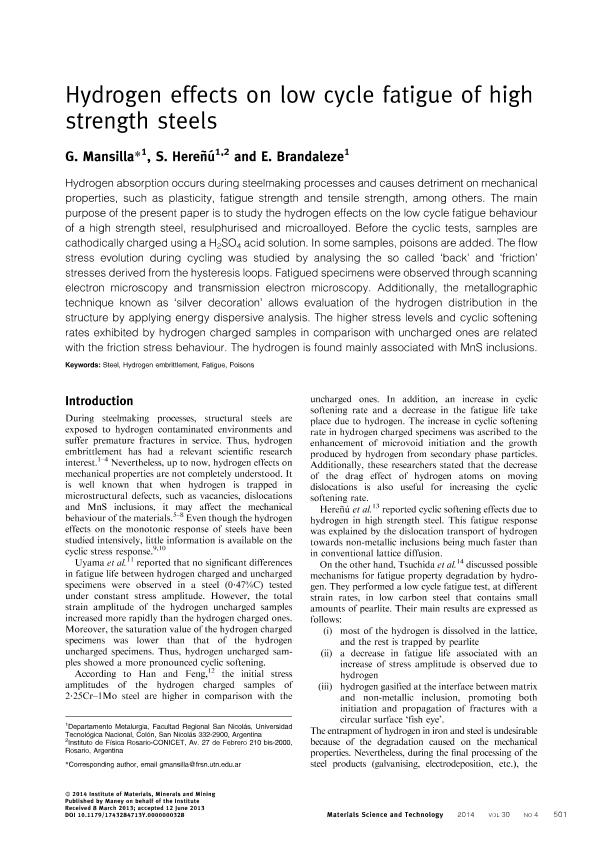Artículo
Hydrogen effects on the low cycle fatigue of high strength steels
Fecha de publicación:
04/2014
Editorial:
Taylor & Francis
Revista:
Materials Science and Technology
ISSN:
0267-0836
Idioma:
Inglés
Tipo de recurso:
Artículo publicado
Clasificación temática:
Resumen
Hydrogen absorption occurs during steelmaking processes and causes detriment on mechanical properties, such as plasticity, fatigue strength and tensile strength, among others. The main purpose of the present paper is to study the hydrogen effects on the low cycle fatigue behaviour of a high strength steel, resulphurised and microalloyed. Before the cyclic tests, samples are cathodically charged using a H2SO4 acid solution. In some samples, poisons are added. The flow stress evolution during cycling was studied by analysing the so called ‘back’ and ‘friction’ stresses derived from the hysteresis loops. Fatigued specimens were observed through scanning electron microscopy and transmission electron microscopy. Additionally, the metallographic technique known as ‘silver decoration’ allows evaluation of the hydrogen distribution in the structure by applying energy dispersive analysis. The higher stress levels and cyclic softening rates exhibited by hydrogen charged samples in comparison with uncharged ones are related with the friction stress behaviour. The hydrogen is found mainly associated with MnS inclusions.
Palabras clave:
Steel
,
Hydrogen Embrittlement
,
Fatigue
,
Poisons
Archivos asociados
Licencia
Identificadores
Colecciones
Articulos(IFIR)
Articulos de INST.DE FISICA DE ROSARIO (I)
Articulos de INST.DE FISICA DE ROSARIO (I)
Citación
Mansilla, G; Hereñu, Silvina Andrea Noemi; Brandaleze, Elena; Hydrogen effects on the low cycle fatigue of high strength steels; Taylor & Francis; Materials Science and Technology; 30; 4; 4-2014; 501-505
Compartir
Altmétricas




